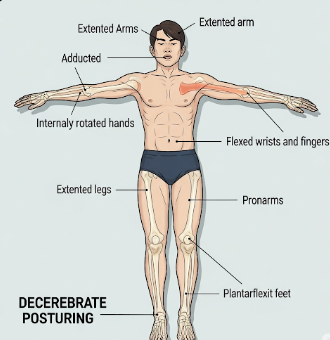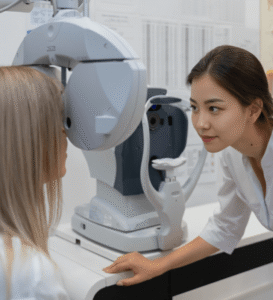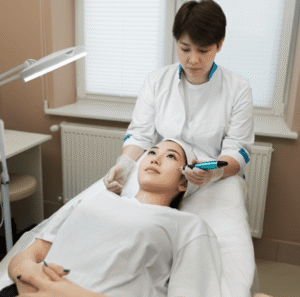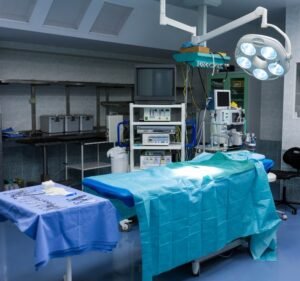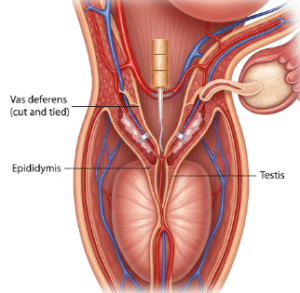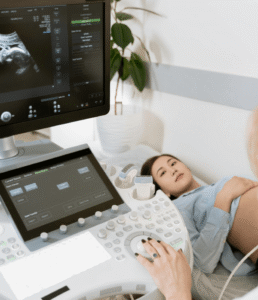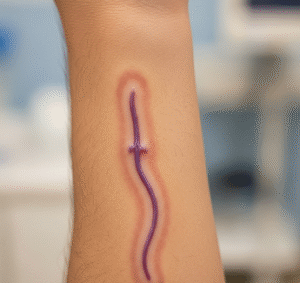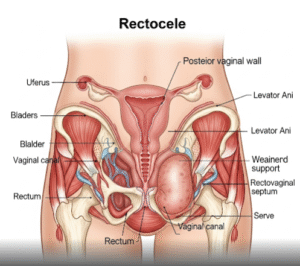Overview
Decerebrate posturing is an abnormal and severe body posture that occurs due to serious brain injury or damage to the brainstem. It is characterized by rigid extension of the arms and legs, downward pointing of the toes, and arching of the head and neck backward. This posture usually appears in response to painful stimuli or spontaneously in critically ill patients.
In Korea, patients showing decerebrate posturing are typically treated in advanced neurology and neurosurgery centers, where rapid diagnosis with CT, MRI, and intensive care is available. It is considered a medical emergency that requires immediate hospital care.
Key Facts
Highlights:
➡️ A sign of severe brain injury or dysfunction of the brainstem.
➡️ The arms and legs become stiff and extended.
➡️ Often triggered by painful stimuli.
➡️ Indicates a serious or life-threatening condition.
➡️ Requires immediate hospitalization and intensive treatment.
What is Decerebrate Posturing?
Decerebrate posturing is a type of abnormal involuntary posture seen in patients with severe damage to the upper brainstem or lesions below the red nucleus in the brain. It is different from decorticate posturing, where the arms are flexed toward the chest.
Key Features:
- Arms are extended and pronated.
- Legs are extended and stiff.
- Head is often arched backward.
- Toes may point downward (plantar flexion).
- Appears during coma, brain injury, or severe neurological disease.
What Symptoms are Related to Decerebrate Posturing?
Since it is a neurological sign, decerebrate posturing usually occurs with other symptoms of severe brain dysfunction:
- Unconsciousness or coma
- Abnormal breathing patterns
- Loss of normal reflexes
- Dilated or unresponsive pupils
- Seizures
- Abnormal heart rate or blood pressure
- Other abnormal postures (decorticate or mixed responses)
Highlights:
➡️ Always indicates serious brain dysfunction.
➡️ Usually associated with coma and brainstem injury.
What Causes / Possible Causes of Decerebrate Posturing?
Highlights:
➡️ Traumatic brain injury (severe head trauma).
➡️ Brainstem stroke or hemorrhage.
➡️ Brain tumors pressing on the brainstem.
➡️ Severe brain swelling (edema).
➡️ Brain infections (encephalitis, meningitis).
➡️ Hydrocephalus (increased fluid pressure in the brain).
➡️ Toxin or metabolic causes (liver failure, severe electrolyte imbalance).
➡️ Hypoxia (lack of oxygen to the brain).
When Should I See My Doctor?
Decerebrate posturing is a medical emergency.
Immediate hospitalization is required. Do not wait for symptoms to improve.
Highlights:
➡️ If someone shows stiff extended limbs and arching posture after head injury.
➡️ If decerebrate posturing appears in an unconscious or comatose patient.
➡️ If accompanied by breathing difficulty, seizures, or unresponsiveness.
➡️ Requires emergency neurology/neurosurgery intervention.
Care and Treatment
Treatment focuses on managing the underlying cause and preventing further brain damage.
Highlights:
➡️ Emergency Stabilization
- Airway support and oxygen.
- IV fluids and medications to stabilize blood pressure.
- Monitoring in an ICU.
➡️ Medical Treatment
- Medications to reduce brain swelling (mannitol, steroids).
- Anticonvulsants for seizures.
- Treating infections with antibiotics/antivirals.
- Correcting electrolyte or metabolic imbalances.
➡️ Surgical Options
- Craniotomy to relieve pressure from bleeding or tumor.
- Shunt placement for hydrocephalus.
➡️ Long-Term Care
- Neurorehabilitation (if patient survives).
- Physical and occupational therapy.
- Supportive care for coma patients.
Treatment Options in Korea
Korea is globally recognized for its advanced neurology and neurosurgery facilities, offering immediate, specialized care for patients with brain injury.
Highlights:
➡️ Emergency Neurosurgery Centers: Equipped with 24/7 trauma and stroke response.
➡️ Neuro-ICU Facilities: Advanced ventilation, monitoring, and life support for critically ill patients.
➡️ Imaging & Diagnostics: Rapid CT, MRI, and angiography for accurate brain evaluation.
➡️ Advanced Neurosurgical Techniques: Tumor removal, clot evacuation, and brainstem decompression.
➡️ Rehabilitation Programs: Comprehensive neurorehabilitation including robotic therapy, physiotherapy, and speech therapy.
➡️ Medical Tourism Support: Korea provides coordinated international patient care for neurological emergencies.

